Hassan M Emara
Polyploidy and Discontinuous Heredity Effect on Evolutionary Multi-Objective Optimization
Mar 02, 2013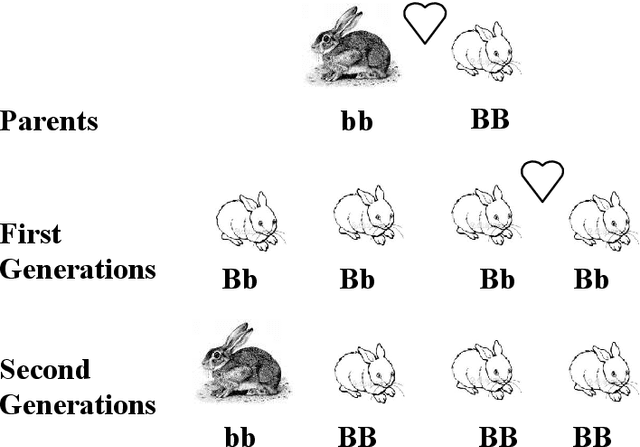
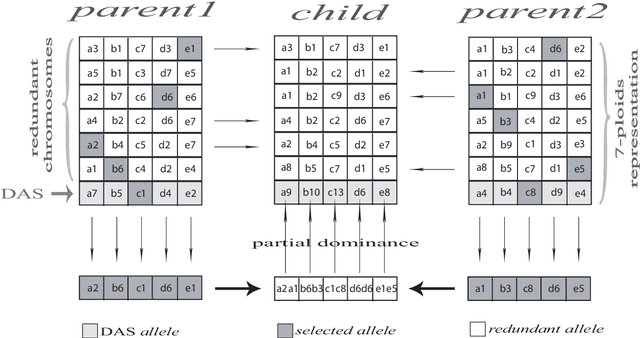
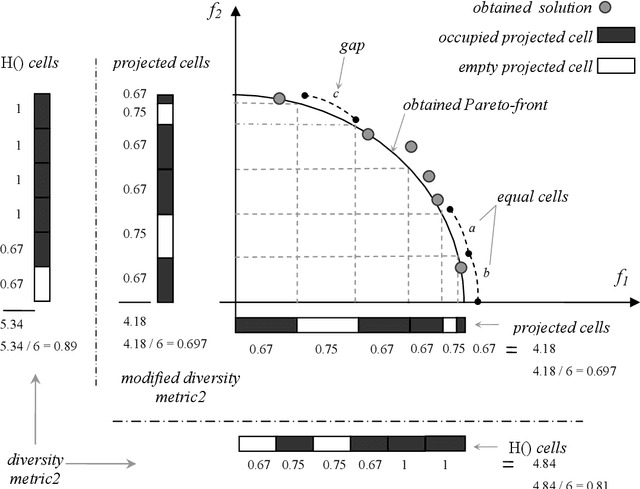
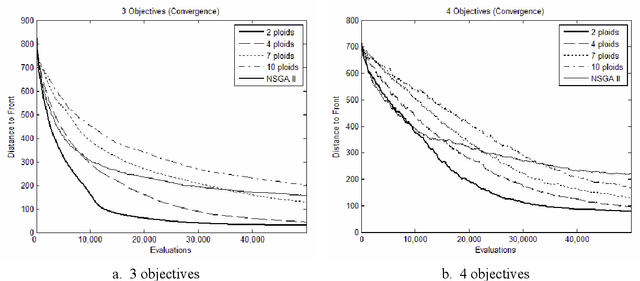
Abstract:This paper examines the effect of mimicking discontinuous heredity caused by carrying more than one chromosome in some living organisms cells in Evolutionary Multi-Objective Optimization algorithms. In this representation, the phenotype may not fully reflect the genotype. By doing so we are mimicking living organisms inheritance mechanism, where traits may be silently carried for many generations to reappear later. Representations with different number of chromosomes in each solution vector are tested on different benchmark problems with high number of decision variables and objectives. A comparison with Non-Dominated Sorting Genetic Algorithm-II is done on all problems.
Clubs-based Particle Swarm Optimization
Mar 02, 2013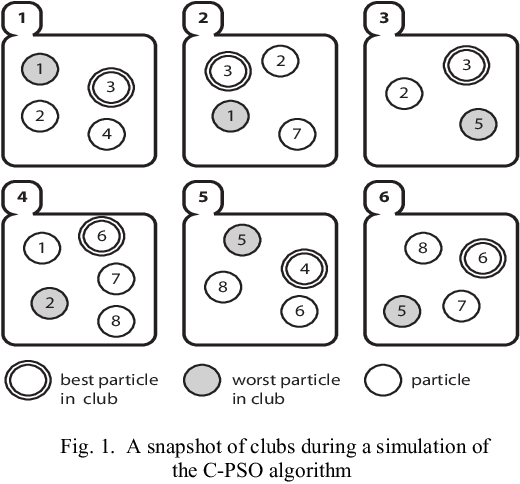
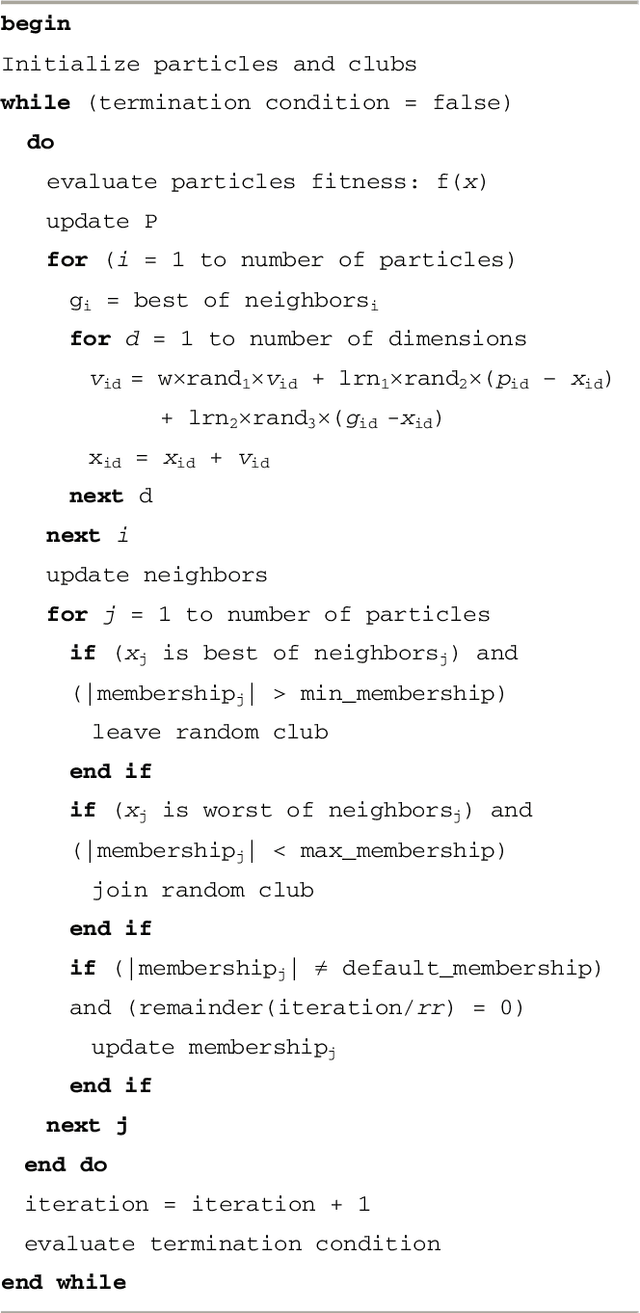
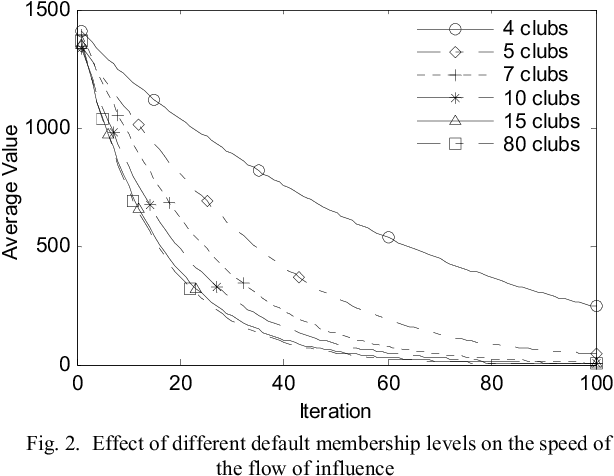
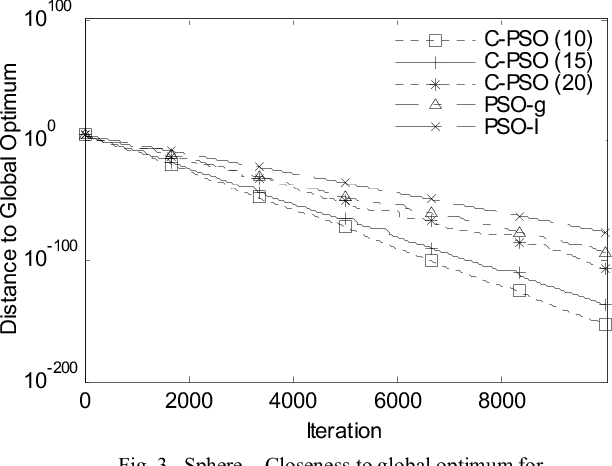
Abstract:This paper introduces a new dynamic neighborhood network for particle swarm optimization. In the proposed Clubs-based Particle Swarm Optimization (C-PSO) algorithm, each particle initially joins a default number of what we call 'clubs'. Each particle is affected by its own experience and the experience of the best performing member of the clubs it is a member of. Clubs membership is dynamic, where the worst performing particles socialize more by joining more clubs to learn from other particles and the best performing particles are made to socialize less by leaving clubs to reduce their strong influence on other members. Particles return gradually to default membership level when they stop showing extreme performance. Inertia weights of swarm members are made random within a predefined range. This proposed dynamic neighborhood algorithm is compared with other two algorithms having static neighborhood topologies on a set of classic benchmark problems. The results showed superior performance for C-PSO regarding escaping local optima and convergence speed.
Parameter Identification of Induction Motor Using Modified Particle Swarm Optimization Algorithm
Feb 28, 2013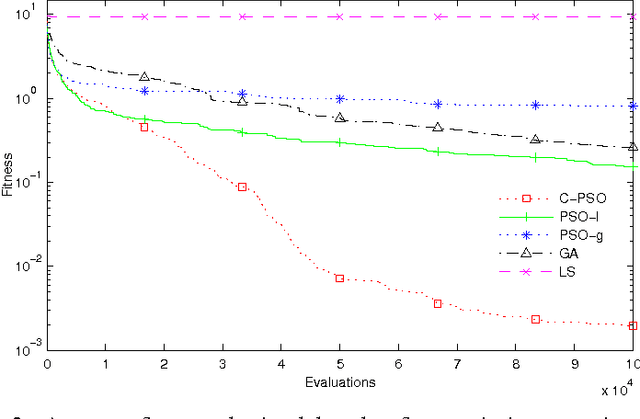

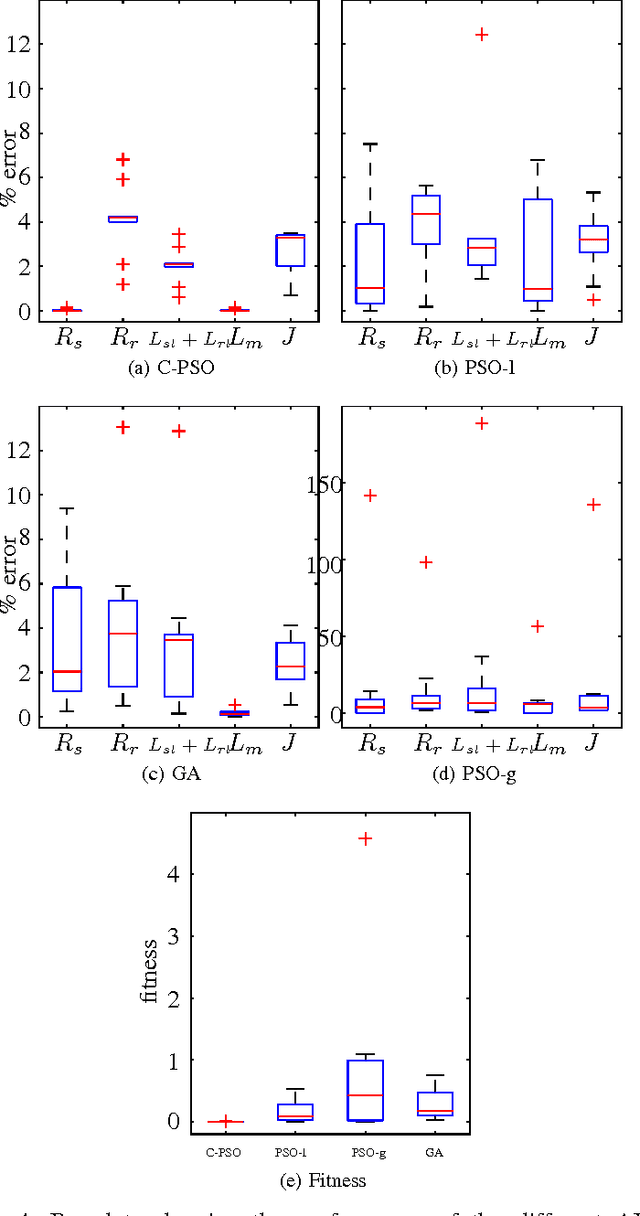
Abstract:This paper presents a new technique for induction motor parameter identification. The proposed technique is based on a simple startup test using a standard V/F inverter. The recorded startup currents are compared to that obtained by simulation of an induction motor model. A Modified PSO optimization is used to find out the best model parameter that minimizes the sum square error between the measured and the simulated currents. The performance of the modified PSO is compared with other optimization methods including line search, conventional PSO and Genetic Algorithms. Simulation results demonstrate the ability of the proposed technique to capture the true values of the machine parameters and the superiority of the results obtained using the modified PSO over other optimization techniques.
 Add to Chrome
Add to Chrome Add to Firefox
Add to Firefox Add to Edge
Add to Edge